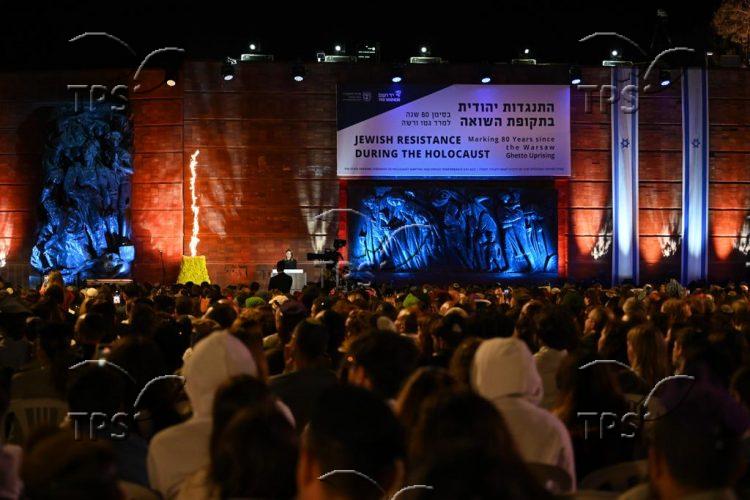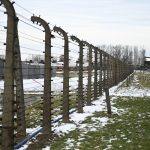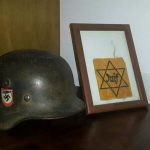Judith Sohlberg Was 8-Years Old When She Saved Lives in a Nazi Concentration Camp
Jerusalem, 17 April, 2023 (TPS-IL) -- Near the end of World War II, Judith Sohlberg was just eight years-old when she and her family were in the Bergen-Belsen concentration camp — and her father wanted her to do something odd by camp standards.
“Father realized that the Nazis were going to exterminate many Jews today,” Sohlberg recalled to the Tazpit Press Service. “He asked me to do an unusual thing and enter as a girl the men’s barracks, and see who didn’t have the strength to get off the bunk. Father said that whoever stayed lying down, would not stay alive. He asked me to go talk to them, sing to them, tell them something, and above all, encourage them, and not give up until they got up,” she said.
Sohlberg isn’t sure how many lives she saved. “Tens,” she told TPS.
“But they got up.”
On Monday night, Sohlberg will be one of six Holocaust survivors honored with lighting a memorial torch during Israel’s main Holocaust Remembrance Day ceremony.
Holocaust Remembrance Day, also known as Yom HaShoah, is the day Israel commemorates the six million Jews killed in the Nazi Holocaust. National ceremonies begin at sundown on Monday. Flags are lowered to half-mast. On Tuesday morning at 10:00, an air raid siren will go off and Israelis will observe two minutes of silence.
Now 88, the Amsterdam native married and has four children, 24 grandchildren and 33 great-grandchildren. One of her sons, Judge Noam Sohlberg, sits on Israel’s Supreme Court.
In 1943, while a little girl living in Amsterdam, the Dutch underground planned to smuggle Jewish children to safety. Judith van Dijk and her sister Elisabeth were given five-minutes notice to put on several layers of clothing and to go to a certain theater. But the girls refused to separate themselves from their parents.
Instead, the Nazis sent the family to the Westerbork transit camp in the Netherlands. From Westerbork, Jews would be deported to concentration camps further east. From Westerbork, Judith’s grandfather was taken to Auschwitz and murdered.
The rest of the van Dijk family were sent to Bergen-Belsen, a concentration camp in northern Germany where 50,000 Jews died, mostly from disease and starvation.
As she got off the train, she heard shouts of “Raus!” and saw Germans with whips and dogs. Jews were made to stand in formation for hours at a time in the bitter cold and snow. Judith’s grandfather, Rabbi Simon de Vries, died in Bergen-Belsen.
Judith’s mother knew German and was made to work in the camp’s offices. She used the opportunity to steal burnt crusts of bread which she shared with her family.
Judith and Elisabeth managed to embroider a Sabbath bread cover, decorate it with a Hebrew inscription, and keep dried bread inside of it.
The Nazis separated men and women in separate barracks. But when family members were allowed to get together, Judith would go to her father’s shack, where he urged her to sneak into the men’s barracks to encourage sick people who were lying in bed to get up, lest they be killed by the Nazis.
In April 1945, as the Allies advanced in Europe, the van Dijks and other prisoners were put on a train that traveled between the adjacent western and eastern fronts without any particular destination. Many of the prisoners died on the train. At one stop, Judith and her sister spotted a sack of potatoes outside, jumped over the dead at the door of the car and hauled the sack inside.
“Those potatoes saved many people on the train,” Judith said.
The prisoners on the train were eventually liberated by the Red Army near the eastern German town of Trobitz.
After the war, Judith arrived in Switzerland where she met Saul Sohlberg, a former classmate from Amsterdam. He had survived the war hidden by Christian farmers in the Netherlands.
“Personally, I am very excited to light a torch today, and also to point out on behalf of my father and sister, that there is always hope, and that we must not give up. Here we tried to save a life, and we succeeded.”







